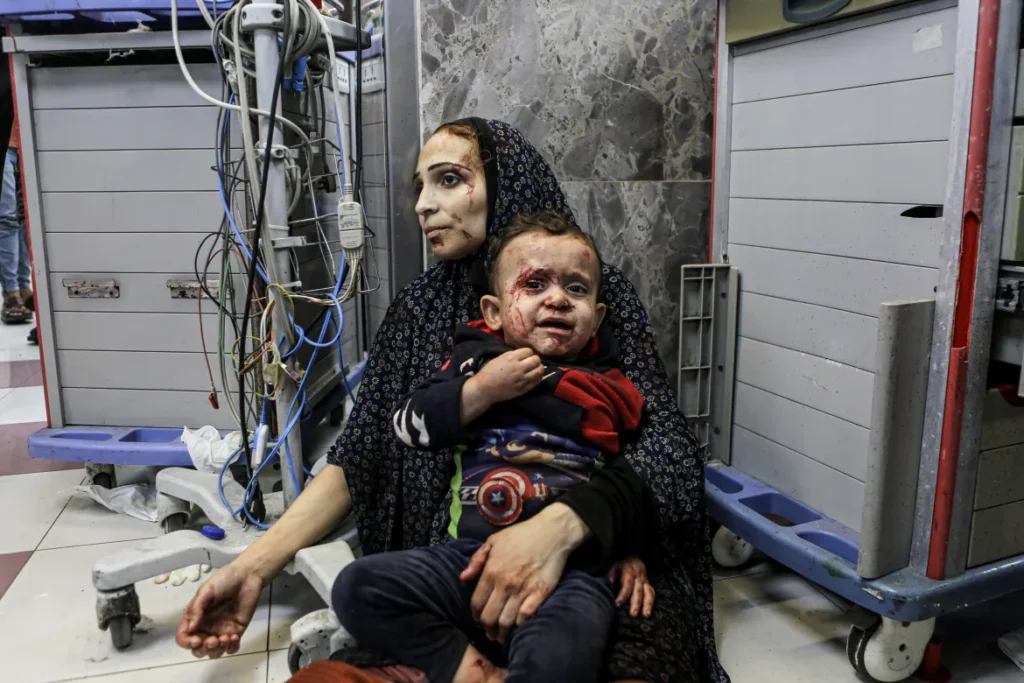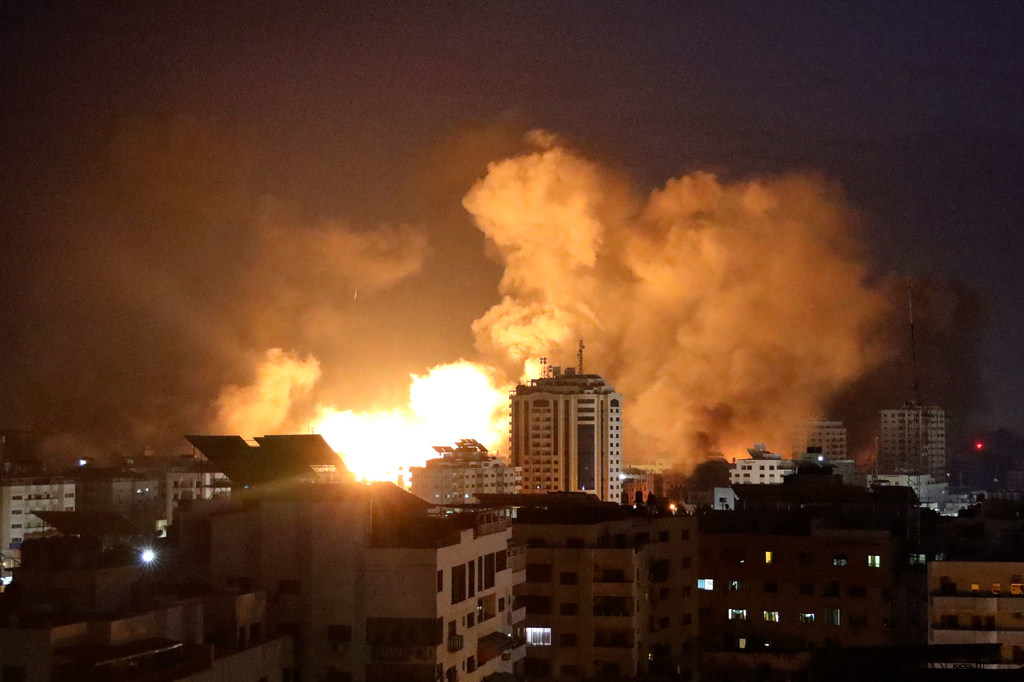Israel has refuted claims of targeting the Al-Ahli Arab Hospital in Gaza on Tuesday, asserting that a misfire by the Palestinian Islamic Jihad (PIJ) was responsible for the incident.
PIJ has accused Israel of attempting to conceal a “massacre,” while Hamas has argued that the United States bears ultimate responsibility for the situation.
The hospital has tragically seen more than 600 confirmed casualties, with an additional 900 individuals injured, and the death toll is expected to increase overnight. Alongside patients, the hospital was providing shelter to numerous Palestinian civilians seeking refuge from Israeli airstrikes.
Israel Defense Force (IDF) spokesman Daniel Hagari said that “an enemy rocket barrage was carried out towards Israel, which passed through the vicinity of the hospital when it was hit.”
“According to intelligence information, from several sources we have, the Islamic Jihad terrorist organization is responsible for the failed shooting that hit the hospital,” Hagari added. Israeli PM Benjamin Netanyahu reposted the IDF claim.
“The entire world should know: It was barbaric terrorists in Gaza that attacked the hospital in Gaza, and not the IDF. Those who brutally murdered our children also murder their own children,” Netanyahu added later.
A spokesperson for PIJ rejected the Israeli claims as “completely untrue” and accused the IDF of attempting to conceal the terrible crime and massacre they perpetrated against civilians.

In Gaza, one Palestinian doctor described the attack to Al Jazeera as a “massacre,” while a representative from the Red Crescent in the West Bank referred to it as “genocide” and “a war crime.”
Following the October 7 incursion by Hamas militants, Israel declared a state of war against Gaza, resulting in the loss of over 1,300 Israeli lives. Hamas leader Ismail Haniyeh stated to reporters on Tuesday evening that the hospital attack “confirms the enemy’s brutality and the extent of their sense of defeat,” labeling it as “a new turning point” in the conflict.
Haniyeh also asserted that “the United States bears responsibility for the hospital attack due to the support it provides to Israeli aggression.”
Egypt, Qatar, and Turkey condemned the hospital strike and attributed it to Israel. The World Health Organization, while not assigning blame, called on Israel to revoke its “evacuation” order for Gaza. Russia and the UAE have called for an emergency session of the UN Security Council to address the incident.
The Al-Ahli Arab Hospital, originally established by the Church of England in 1882, is currently under the administration of the Episcopal Diocese of Jerusalem. It is also referred to as the Baptist Hospital because it was managed by the U.S.-based Southern Baptist Church from 1954 to 1982.

Analysis
Israeli denial of the hospital bombing is contradicted by the following evidence:
- The explosion was unusually large for a Hamas rocket.
- The explosion’s yield appears to be consistent with IDF munitions currently being used in Gaza in the last few days, rather than the less powerful locally made rockets produced by Hamas.
- The characteristics of the explosion are reminiscent of a JDAM 1000lb munition in terms of yield.
- The absence of a secondary explosion suggests that the hospital was not being used as a weapons storage site.

JDAM is a guidance kit that can be attached to conventional “dumb” or unguided bombs to transform them into highly accurate, all-weather, and beyond-visual-range munitions. The specific JDAM kit could be the 500 pounder designed to convert 500-pound bombs into precision-guided munitions.
The key features of JDAM include:
- GPS Guidance: JDAM relies on GPS signals to accurately guide the bomb to its target. This guidance system allows for greater precision in hitting specific targets and reduces the risk of collateral damage.
- Inertial Guidance: In addition to GPS, JDAM also employs an inertial navigation system to ensure the bomb can maintain its accuracy even in situations where GPS signals may be jammed or disrupted.
- Versatility: JDAM kits can be attached to a variety of unguided bombs, making it a cost-effective way to upgrade existing munitions to smart weapons. This versatility allows military forces to use JDAM with different bomb sizes, including the 500-pound variant.
- Reduced Risk to Aircrews: The precision guidance offered by JDAM reduces the need for aircrews to fly at low altitudes or in close proximity to their targets, minimizing exposure to anti-aircraft fire and other threats.
JDAM has been widely used in various military operations, including conflicts in Afghanistan, Iraq, and Syria. Its accuracy and effectiveness have made it a valuable tool for military forces seeking to minimize civilian casualties and infrastructure damage while targeting specific military objectives.
The common factor in the bombings of these hospitals is the belief held by Bibi Netanyahu and Yoav Gallant that they were harboring Hamas weaponry and militants. A mere speculation, nay a desire to maximize an opportunity to kill as much Palestinians as they can before any UN resolutions come into effect, ended the lives of 600 in mere seconds.
The big question now is: Will Iran follow through with its previous warning of a “preemptive strike” against Israel should the latter continues to bomb civilian targets in Gaza?
Shop For Night Vision | See more…
Shop For Survival Gear | See more…
-
Sale!

Mesh Shooting Hunting Vest with Multi Pockets
Original price was: $59.99.$39.99Current price is: $39.99. Add to cart -
Sale!

Stainless Steel Survival Climbing Claw Carabiner Multitool Folding Grappling Hook
Original price was: $19.99.$9.99Current price is: $9.99. Add to cart -
Sale!

Japanese 6 inch Double Edged Hand Pull Saw
Original price was: $19.99.$9.99Current price is: $9.99. Add to cart



















































